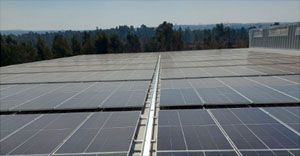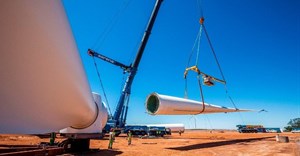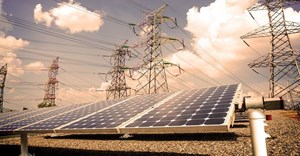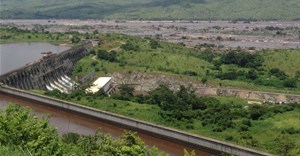Trending



 Clothing brand Curve Gear opens new store in Tygervalley CentreLindsey Schutters
Clothing brand Curve Gear opens new store in Tygervalley CentreLindsey Schutters Sabre EMEA 2024 Awards: Razor PR, Retroviral top SA agenciesDanette Breitenbach
Sabre EMEA 2024 Awards: Razor PR, Retroviral top SA agenciesDanette Breitenbach
Elections 2024
Jobs
- Payroll - Senior Administrator Johannesburg
- Payroll Accountant George
- Payroll Administrator East Rand
- Payroll Administrator East Rand
Floatovoltaics solve more than one sustainability challenge

Solar photovoltaics (PV) has steadily grown in popularity globally as a source of renewable energy, and the technology is being installed in utility scale and on rooftops and other forms of distributed power and micro-grid applications. An additional configuration of solar PV technology exists that has interest because of its ability to help reducing water losses from evaporation and generating cost effective clean energy.
Floating solar PV, or floatovoltaics, combine floating technology with solar PV technology, particularly in areas where land availability for large-scale installation are limited.
“Floatovoltaics are a modular system comprised of a main float, upon which solar PV panels are fitted to connectors for the various main floats. The contemporary floating structures are designed in such a way that offers solar PV panels maximum exposure to solar irradiance and the secondary floating structures associated with primary floats facilitates as pathways during maintenance,” explains Edward Kamara, senior electrical engineer at Black & Veatch South Africa.
Generating power and saving water
A 1MW floatovoltaic typically covers a three- to four-acre area of water - shielding the water from the sun and reducing water evaporation losses by up to 70%. An installation of this size can save between 15 Mℓ to 18 Mℓ of water a year.
Kamara adds, “The general rule of thumb is that a floatovoltaic system will save about 1.25-billion litres of water a year for every square kilometre of surface area.”
“In water stressed regions, which often experience severe or cyclical drought conditions, floatovoltaics provide a means to protect water - one of the world’s most precious and rare resources, while improving energy security at the same time,” Kamara asserts.
He points out that droughts have a particularly detrimental impact on the agricultural sector, which further adds to food scarcity challenges.
“Through innovative approaches such as floatovoltaics, it is possible to help improve the lives of millions of people living in Southern Africa and elsewhere. We have the technical capabilities to move the needle for both energy and water prosperity,” he concludes.










